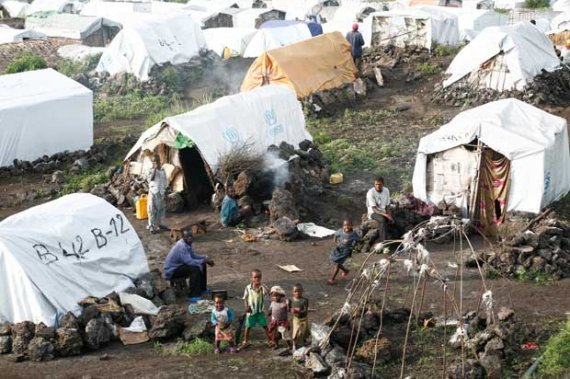Aid delivered by aid organizations is not always effective. There is a strong focus on fundraising, which leads organizations to choose projects with popular appeal, even if it means a duplication of efforts. This is the view of professor of Disaster Studies Thea Hilhorst. Together with colleagues, Hilhorst studied the aid offered to the victims of rape in the Democratic Republic of Congo. During the war there were reports of mass rapes which appalled the international community. The result was that aid organizations poured into the region. In the provinces of North and South Kivu, where Hilhorst’s study was conducted, there are now about 400 organizations providing help for victims to the tune of almost 90 million dollars since 2010.
One-sided
The focus on rape has led to a neglect of other needs such as maternity services, says the report on the study, published yesterday. Moreover, the aid was one-sided: most of it was short-term medical support. There was no attention to the underlying causes, namely the powerless position of women in the Congo. Too often, the aid was orchestrated from distant head offices of international aid organizations without proper research on the needs on the ground or an integrated approach to them. Many international organizations are ‘opportunistic’, says the report. ‘They have no concrete expertise and are primarily interested in securing funding.’ Organizations prioritize reaching large numbers of victims and therefore opt for easily accessible locations. It also seems that poor women sometimes pretend to have been raped in order to qualify for aid.
Business
Aid for victims of sexual violence has become a business, concludes the report. And this turns sexual violence into a business, both for international organizations and for individuals in the Congo. This is more likely to impede efforts to tackle the problem than to assist them. ‘Development organizations play on the emotions too much and pursue hypes in order to get money out of donors’, said Hilhorst on a recent radio programme. ‘Actually, this shows what could happen to development cooperation if it gets less government funding. I appeal for government-funded development cooperation.’

